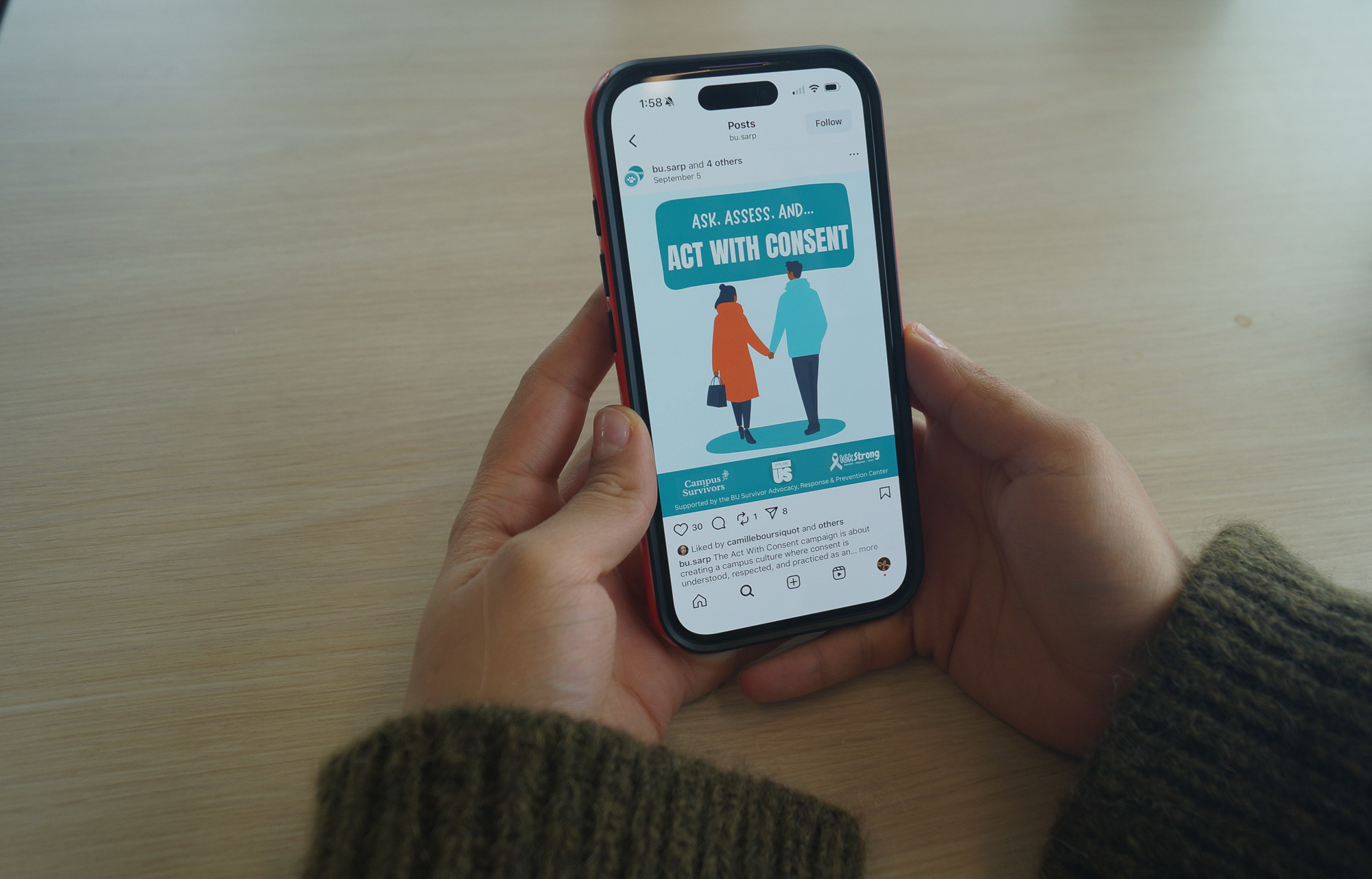Boston University’s “Act with Consent” campaign launched this semester to challenge misconceptions about sexual consent among students.

The campaign is a collaboration between the Campus Survivors student organization, BU’s chapter of It’s on Us, the BU Student Government senate committee 16K Strong and Student Health Service’s Survivor Advocacy, Response and Prevention Center.
The campaign is promoting consent culture through posters displayed on campus and a column written in the SARP Condom Fairy newsletter.
Kodhai Duraiarasan, president of It’s on Us, co-chair of 16K Strong and executive director of Campus Survivors, conducted a student survey over the summer through StuGov. She said the survey results conveyed a need for education about consent on campus.
“[Students] felt that there wasn’t a whole lot of standardized uniform education that they were receiving around what a healthy model of consent actually looks like,” she said. “They wanted more guidance on how to navigate these intimate scenarios with agency and confidence.”
Alyssa Ardry, social media manager for It’s On Us, designed the posters distributed around campus, which feature slogans promoting the clear communication of consent.
The posters include the phrases, “If you have to guess, it’s not a yes,” and “Romantic. Platonic. Aro. Ace. Consent is always first base.”
Duraiasaran said the campaign aims to educate students about safe sex in a manageable way.
“Our goal is to promote consent culture in a positive way that is informative and easy to take home, but also not too stressful for any one individual to see,” she said.
Subi Upadhyay, a SARP student ambassador and an intern for Campus Survivors, is currently assembling sex education toolkits for BU students.
The toolkits will include bookmarks with quizzes on consent, “cootie catchers” with questions to spark sex education conversations and posters with pop culture references about consent.
Ashley Slay, SARP associate director of interpersonal violence prevention, is advising the student leaders on the campaign execution. She said one of the campaign’s main priorities is representing people from a myriad of backgrounds in its posters, such as asexual and aromantic individuals.
“[We’re] making sure that it feels both inclusive and supportive of survivors and that there’s representation from a broad range of survivor identity,” Slay said.
Slay emphasized that individuals from all demographics can be both survivors and perpetrators of sexual violence.
“When we’re having conversations around this issue, the target and the message for this is [for] everyone,” she said.
SARP will host a fall welcome event on Oct. 24 for students to interact with SARP staff and student ambassadors.
Slay said she hopes to receive student feedback on the campaign’s effectiveness so they can make improvements.
Duraiasaran said she wants the campaign to help students better understand others during sexual encounters, in the hopes of improving campus culture.
“We’re just trying to promote a more positive culture where we’re all more mindful of ourselves and also mindful of other people’s behaviors,” she said, “so that we can pay attention to those clues and treat our partners in the most safe and comfortable way possible.”




















































































































